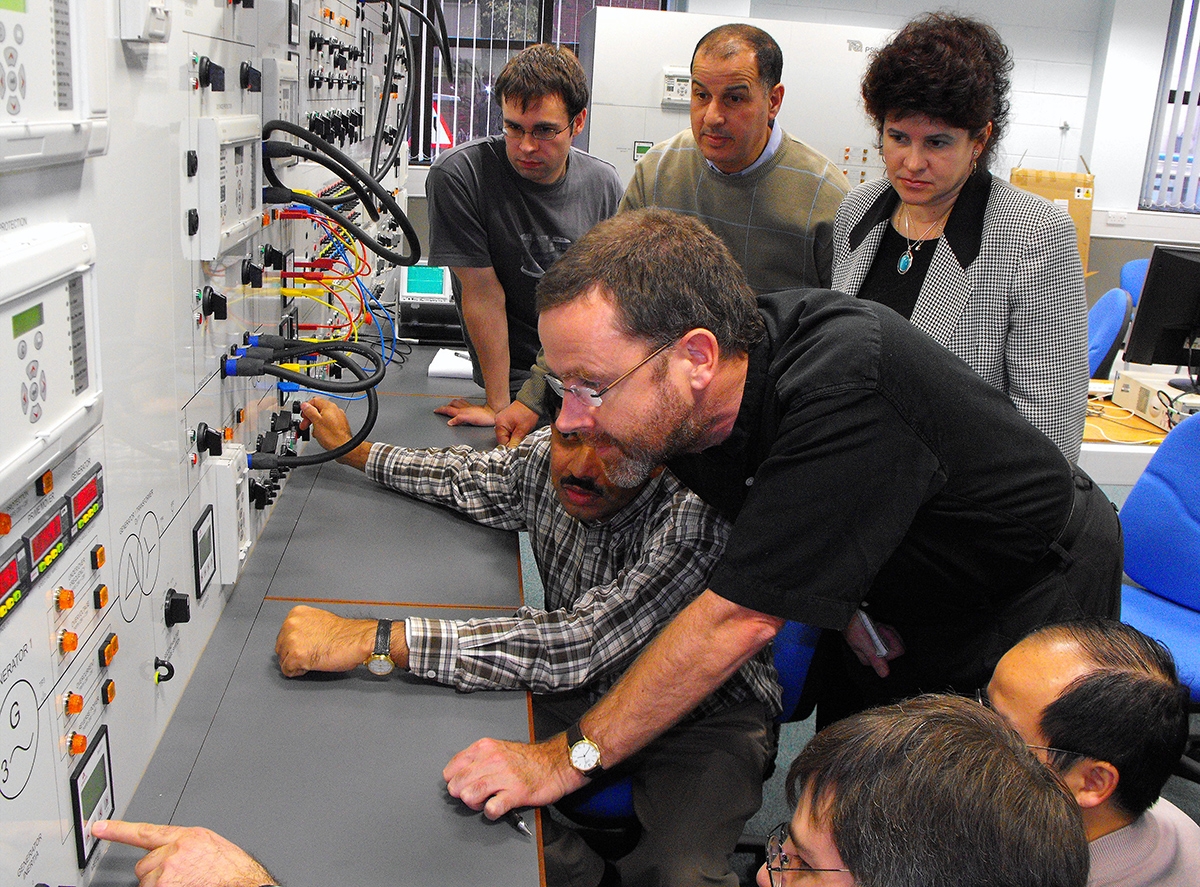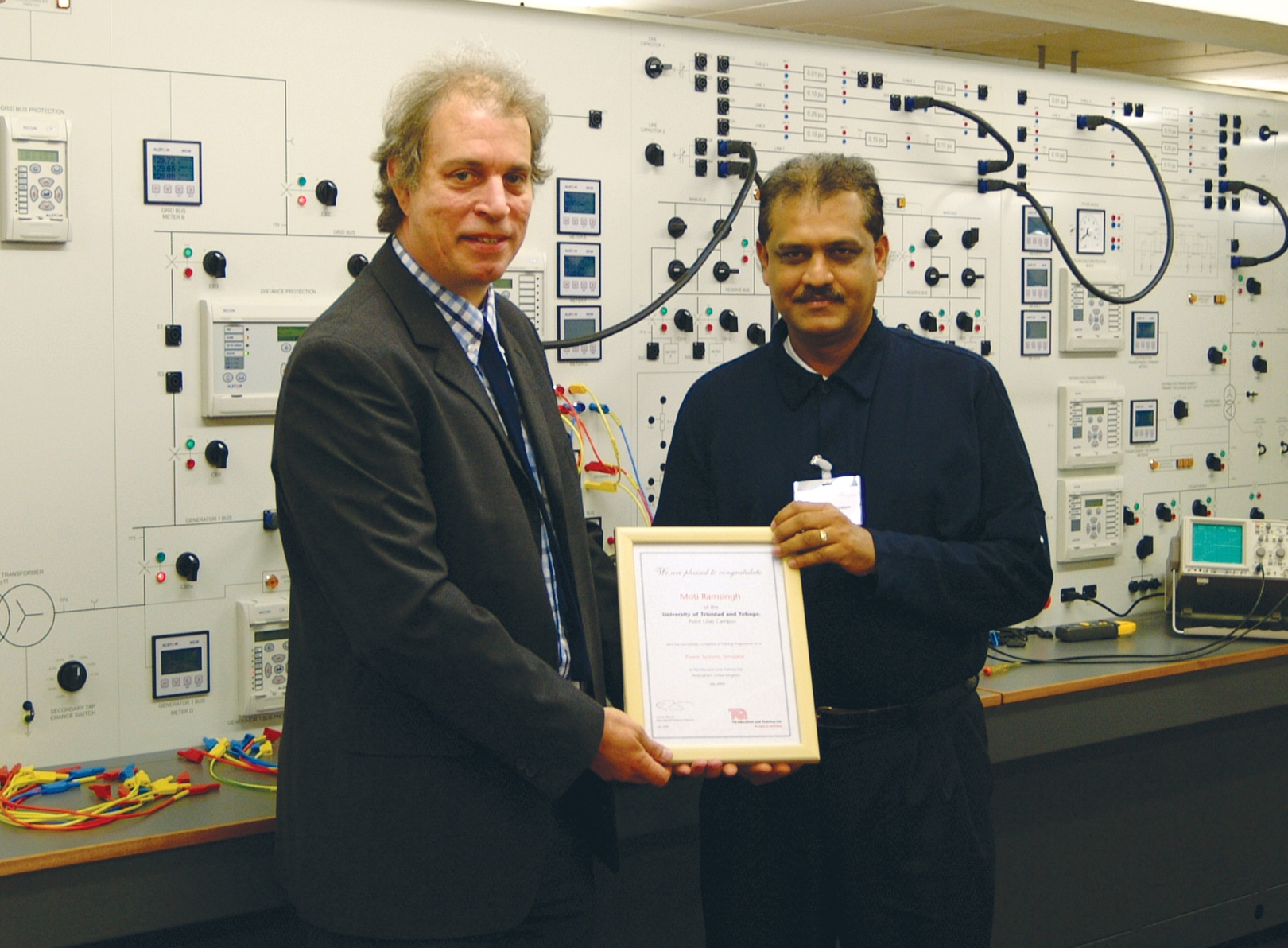In late September, our team at AYVA had the opportunity to see firsthand how CR Clarke equipment is making an impact in two very different environments.
On September 24th, I visited OCAD University with our President, Marc, and Louis, one of our Sales Representatives for CR Clarke. We traveled to Toronto to check in on a recent installation and learn more about how one of the machines was being used in a hands-on, design-driven academic setting.
 As we approached the campus, the Rosalie Sharp Centre for Design immediately stood out. Its bold shapes and vibrant colors made it look more like a piece of modern art than a university building. Once inside, that sense of creativity continued. Every hallway and workspace had its own personality, shaped by the students and projects that filled them.
As we approached the campus, the Rosalie Sharp Centre for Design immediately stood out. Its bold shapes and vibrant colors made it look more like a piece of modern art than a university building. Once inside, that sense of creativity continued. Every hallway and workspace had its own personality, shaped by the students and projects that filled them.
We were welcomed by a faculty member who had worked with Louis during the purchasing process earlier in the year. He had acquired a CR Clarke R25 Plastic Shredder, and we were excited to see how it was being integrated into the student workflow. As we toured the building, we passed through several impressive spaces, including a busy 3D printing lab, a fully equipped wood shop, and a metal shop filled with activity.
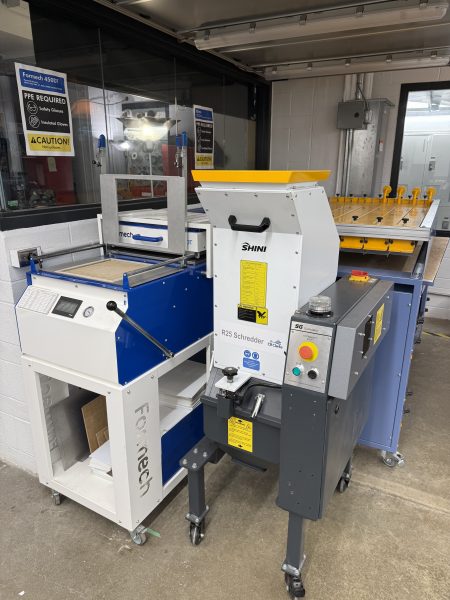 Eventually, we arrived at the Plastics Studio, where the R25 had found its place. The faculty member explained that students were collecting used plastics, shredding them using the machine, and then melting them down with
Eventually, we arrived at the Plastics Studio, where the R25 had found its place. The faculty member explained that students were collecting used plastics, shredding them using the machine, and then melting them down with 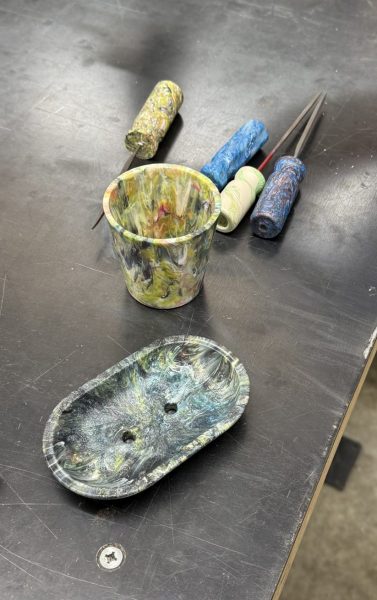 an injection molder. The molten plastic was poured into custom molds, which are often made of metal, to create new, functional items like cups and tool handles. The process blends sustainability with creativity, giving students the chance to turn everyday waste into useful products.
an injection molder. The molten plastic was poured into custom molds, which are often made of metal, to create new, functional items like cups and tool handles. The process blends sustainability with creativity, giving students the chance to turn everyday waste into useful products.
What impressed us most was not just the clever use of the shredder, but the enthusiasm of the faculty member guiding us. His dedication to sustainability and student learning was clear, and it was inspiring to see how industrial tools can foster real-world skills in an educational setting.
The following day, on September 25th, several members of our team visited one of LUSH Cosmetics’ two manufacturing facilities located in Toronto. This visit offered a very different perspective. We were there to check in on several CR Clarke: 1820 Vacuum Formers that had recently been installed and are now being used to help produce plastic molds that support LUSH’s sustainable processes across North America.
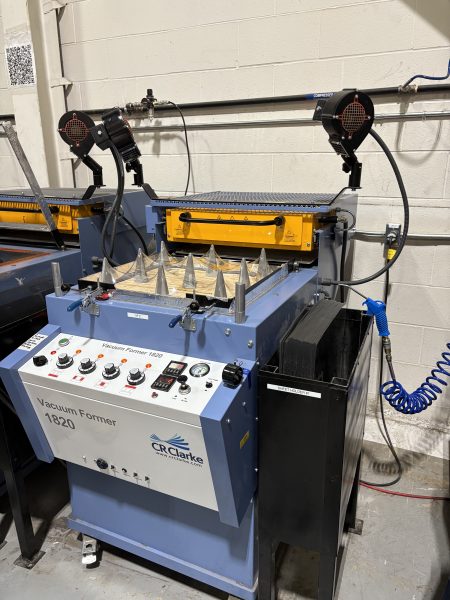 These machines work by heating recycled plastic sheets until they become flexible, then shaping them using the vacuum-forming process to create custom molds. These molds are used during production but typically only a few times before being recycled, along with any leftover scrap material. The recycled material is then processed into new plastic sheets, enabling quick design adjustments and helping to keep waste low.
These machines work by heating recycled plastic sheets until they become flexible, then shaping them using the vacuum-forming process to create custom molds. These molds are used during production but typically only a few times before being recycled, along with any leftover scrap material. The recycled material is then processed into new plastic sheets, enabling quick design adjustments and helping to keep waste low.
The machines currently operate for approximately 16 hours a day across two full shifts. Built for high-volume, industrial use, they are well suited to the demands of LUSH’s fast-paced production environment.
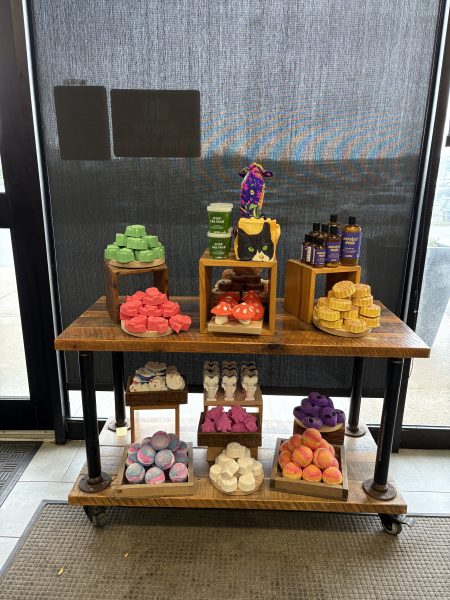 LUSH’s packaging sustainability efforts go beyond just mold production. At their Green Hub facility, used black pots and molds are collected, shredded, and reprocessed. The recycled plastic is then blended and remolded into new containers, helping LUSH significantly reduce waste and extend the life of its packaging materials
LUSH’s packaging sustainability efforts go beyond just mold production. At their Green Hub facility, used black pots and molds are collected, shredded, and reprocessed. The recycled plastic is then blended and remolded into new containers, helping LUSH significantly reduce waste and extend the life of its packaging materials
Although these visits took place in very different settings, with one focused on education and the other on manufacturing, they both highlighted the same core values of innovation, creativity, and a commitment to sustainability. At OCAD University, students are turning waste into opportunity, using hands-on experimentation to learn and create. At LUSH, a global brand is using smart design and advanced equipment to reduce its environmental footprint while maintaining high standards of quality.
We are proud to see our CR Clarke equipment being used to make a real difference in both education and industry. Experiences like these remind us that the right tools, in the right hands, can support meaningful change and help build a more sustainable future.
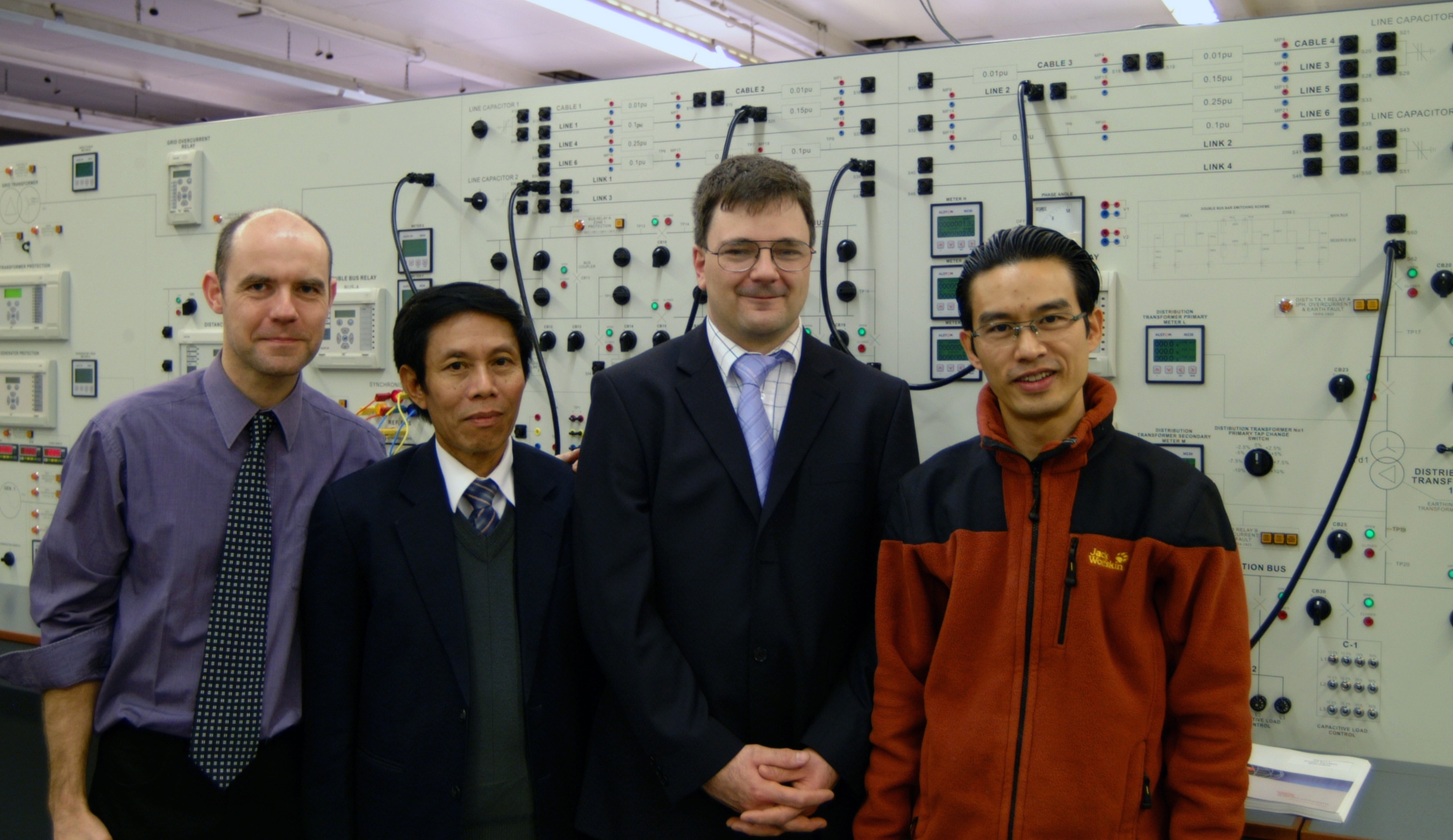

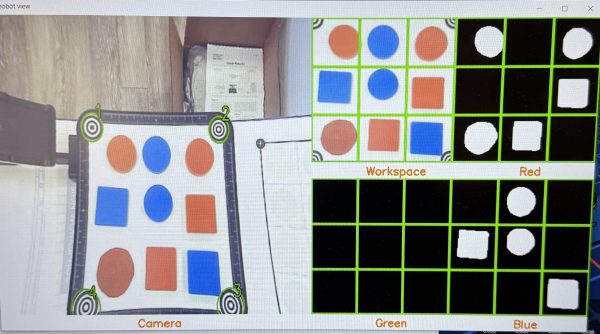 In this project, the Ned2 is fitted with a camera mounted on its wrist, giving it the ability to see. Once the workspace is calibrated, the robot can recognize the board layout and locate game pieces using visual data. The setup includes two sets of colored pawns, which the robot picks and places using a vacuum gripper. The robot captures an image, identifies the positions of the pawns, and maps this information onto a 3×3 digital grid that represents the current state of the game.
In this project, the Ned2 is fitted with a camera mounted on its wrist, giving it the ability to see. Once the workspace is calibrated, the robot can recognize the board layout and locate game pieces using visual data. The setup includes two sets of colored pawns, which the robot picks and places using a vacuum gripper. The robot captures an image, identifies the positions of the pawns, and maps this information onto a 3×3 digital grid that represents the current state of the game.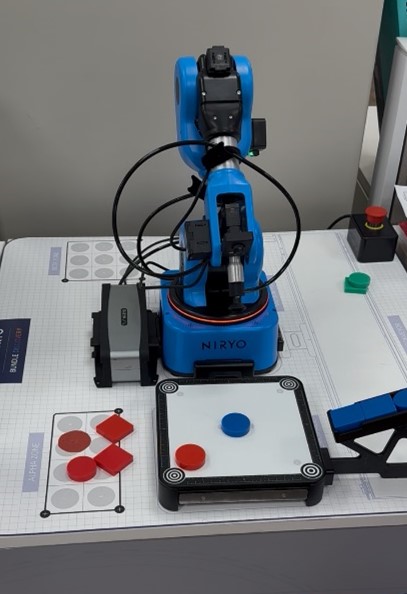 Once the robot decides on its move, it picks up a game piece using a vacuum gripper and places it carefully in the selected cell. After each human turn, the process repeats. The robot takes a new image, updates its internal board, plans the next move, and takes action. This ongoing loop brings together all parts of the robotics pipeline, combining sensing, planning, and physical action in a way that is easy to observe and understand.
Once the robot decides on its move, it picks up a game piece using a vacuum gripper and places it carefully in the selected cell. After each human turn, the process repeats. The robot takes a new image, updates its internal board, plans the next move, and takes action. This ongoing loop brings together all parts of the robotics pipeline, combining sensing, planning, and physical action in a way that is easy to observe and understand. As we approached the campus, the Rosalie Sharp Centre for Design immediately stood out. Its bold shapes and vibrant colors made it look more like a piece of modern art than a university building. Once inside, that sense of creativity continued. Every hallway and workspace had its own personality, shaped by the students and projects that filled them.
As we approached the campus, the Rosalie Sharp Centre for Design immediately stood out. Its bold shapes and vibrant colors made it look more like a piece of modern art than a university building. Once inside, that sense of creativity continued. Every hallway and workspace had its own personality, shaped by the students and projects that filled them. Eventually, we arrived at the Plastics Studio, where the R25 had found its place. The faculty member explained that students were collecting used plastics, shredding them using the machine, and then melting them down with
Eventually, we arrived at the Plastics Studio, where the R25 had found its place. The faculty member explained that students were collecting used plastics, shredding them using the machine, and then melting them down with  an injection molder. The molten plastic was poured into custom molds, which are often made of metal, to create new, functional items like cups and tool handles. The process blends sustainability with creativity, giving students the chance to turn everyday waste into useful products.
an injection molder. The molten plastic was poured into custom molds, which are often made of metal, to create new, functional items like cups and tool handles. The process blends sustainability with creativity, giving students the chance to turn everyday waste into useful products. These machines work by heating recycled plastic sheets until they become flexible, then shaping them using the vacuum-forming process to create custom molds. These molds are used during production but typically only a few times before being recycled, along with any leftover scrap material. The recycled material is then processed into new plastic sheets, enabling quick design adjustments and helping to keep waste low.
These machines work by heating recycled plastic sheets until they become flexible, then shaping them using the vacuum-forming process to create custom molds. These molds are used during production but typically only a few times before being recycled, along with any leftover scrap material. The recycled material is then processed into new plastic sheets, enabling quick design adjustments and helping to keep waste low. LUSH’s packaging sustainability efforts go beyond just mold production. At their Green Hub facility, used black pots and molds are collected, shredded, and reprocessed. The recycled plastic is then blended and remolded into new containers, helping LUSH significantly reduce waste and extend the life of its packaging materials
LUSH’s packaging sustainability efforts go beyond just mold production. At their Green Hub facility, used black pots and molds are collected, shredded, and reprocessed. The recycled plastic is then blended and remolded into new containers, helping LUSH significantly reduce waste and extend the life of its packaging materials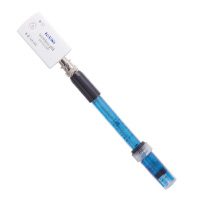
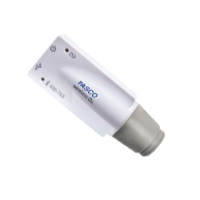


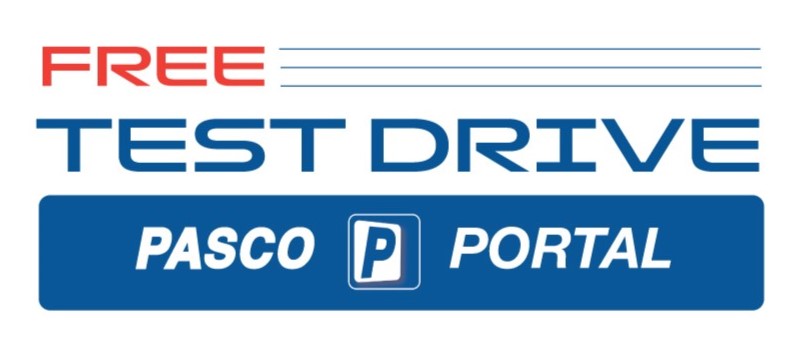
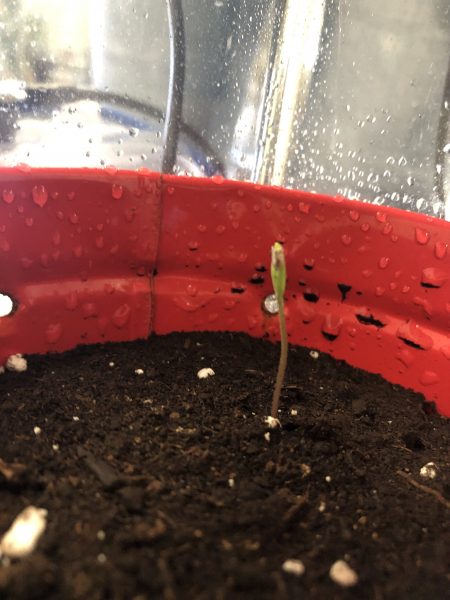 Once the seedling had a week to get settled, we began our salt water treatment. The plants in the red pot received salt water, while the plants in the purple pot received tap water. Just 2 weeks after germination and 1 week after beginning the salt water treatment, our dear red potted sprouts are exhibiting symptoms of death. The tell-tale signs include drooping, shriveling, blackening of the leaves. Overall they seemed to
Once the seedling had a week to get settled, we began our salt water treatment. The plants in the red pot received salt water, while the plants in the purple pot received tap water. Just 2 weeks after germination and 1 week after beginning the salt water treatment, our dear red potted sprouts are exhibiting symptoms of death. The tell-tale signs include drooping, shriveling, blackening of the leaves. Overall they seemed to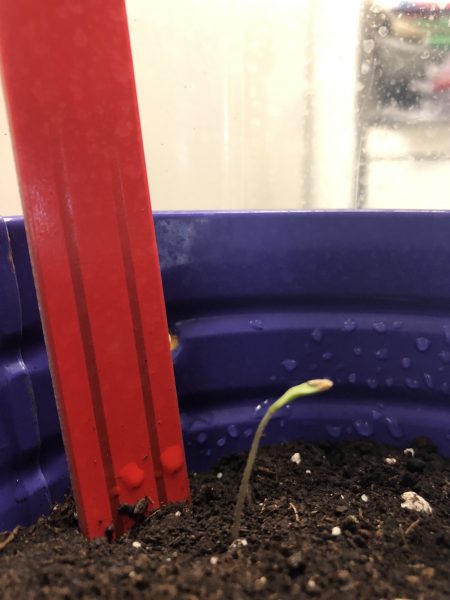 lack water and the will to live.
lack water and the will to live. 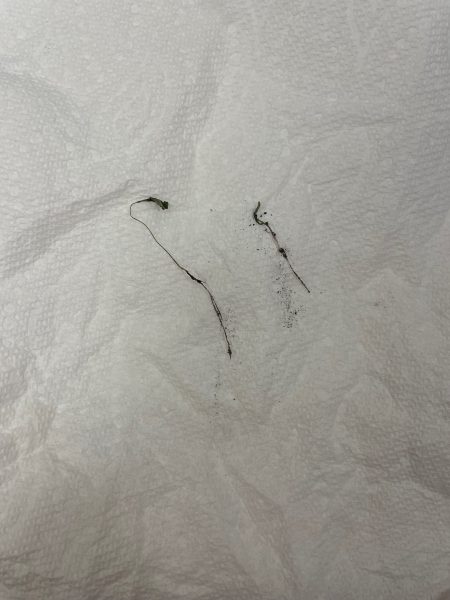 Today, a short week since the beginning of our salt water reign of terror, we arrived at the office to a startling sight. Both seedlings in the red pot, dead. With misty eyes we removed them from their home and planted their replacements. Having learned that salt water does not serve one week old seedlings well, we will try waiting an extra week to see if there is an improvement in our tomato seedlings performance.
Today, a short week since the beginning of our salt water reign of terror, we arrived at the office to a startling sight. Both seedlings in the red pot, dead. With misty eyes we removed them from their home and planted their replacements. Having learned that salt water does not serve one week old seedlings well, we will try waiting an extra week to see if there is an improvement in our tomato seedlings performance. 
